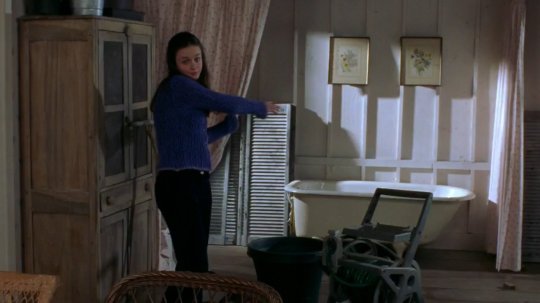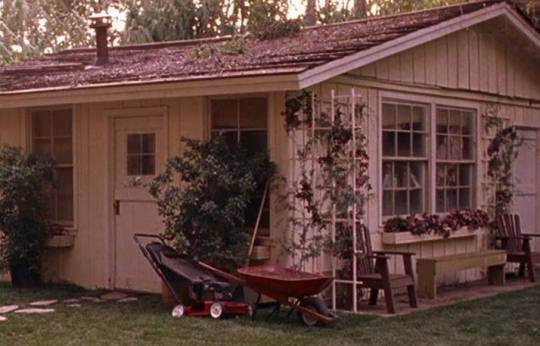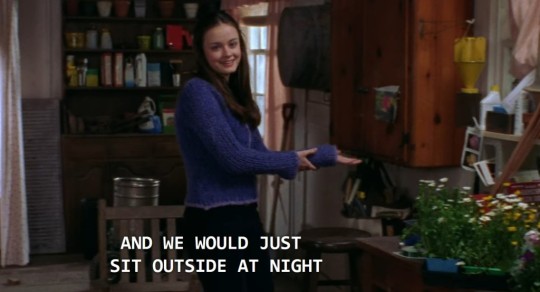#and one that mashed it up with the story of the twelve months that i've liked since i was a kid
Explore tagged Tumblr posts
Text
The Turning of the Year: A Cinderella Retelling
In a long-ago year, in a faraway land, there lived a girl named Alena. She lived in the house of a cruel stepmother, who hated her because she was so much prettier than her own daughter, and who made Alena do all the work of the house. Though the stepmother let her eat only scraps and wear only rags, Alena grew only more kind and beautiful as the year's went by, while her own daughter, Vanda, grew ever more coarse and cruel.
Now one December, it became known that the king of the land would host a grand ball in the city upon the eve of the New Year. Alena, like all other girls, wished to attend, and asked her stepmother if she could go. Her stepmother promised that she could, in order to convince Alena to work even harder in the weeks before.
But when New Year's Eve arrived, and Alena asked if she could dress for the ball, her stepmother cried, "A ball? When there is so much work to do? We must cast out the old year! You shall attend no ball before the house is cleaned. If there is even a speck of dust left in this house at midnight, you shall bring bad luck upon us all--and it shall be very bad luck for you.”
With that, her stepmother left the house, along with her own daughter, Vanda, to purchase trimmings for their dresses at the ball.
Scarcely had Alena begun to clean the kitchen when she heard footsteps near the back garden gate. When Alena peered outside, she found an old woman walking alone, her back so bent she could not stand without her staff, and her hair so white the snowflakes seemed dark upon it.
“Good mother!” Alena cried, rushing to the woman’s aid. “Come inside to warm yourself! It is no weather for traveling.”
The old woman took a seat by the fire with thanks, and gladly shared the crust of bread that was the only meal Alena’s stepmother had given her.
“You are good to an old woman,” the stranger said. “Yet that is no surprise, for you have been good the whole year through.”
“You do not know me,” Alena said in surprise.
“But I do,” the woman replied, “for I am the Old Year. You have shown me kindness near the end of my journey, so I will be glad to do what I can to help you in yours. What troubles you, child?”
Alena said with sorrow, “My stepmother will not let me attend the prince’s ball until I have cleaned every speck of dust from the house.”
“That is easily done,” the Old Year said, “for April shall reign in this house for the hour.”
With that, though the woman remained old and bent upon her stool, she also seemed somehow to be tall and straight, young and beautiful, with apple blossoms in her golden hair. In the garden outside, the snow clouds cleared away for springtime sun, and warm breezes blew through the house, gathering all the dirt and dust and soot and spreading it neatly in the gardens outside. While spring reigned, Alena gathered blossoming branches from the garden and placed them in jars around the house. Before the hour was over, the house shone. The old woman then lost her youthful aura, and winter returned to the gardens outside.
Alena thanked the Old Year from the bottom of her heart, but at that moment, her stepmother and stepsister returned. Alena, knowing that her stepmother would beat her for letting a ragged stranger into the house, hid the Old Year in the pantry just before her mother entered the kitchen.
“You lazy girl!” Stepmother shouted, when she saw Alena sitting on the stool near the fireplace. “Why are you sitting when the house must be cleaned?”
“It is clean, Stepmother,” Alena replied.
Her stepmother protested, but when she inspected the house, she found not a speck of dust.
She returned to the kitchen filled with rage, for she did not wish Alena to attend the ball and outshine her own daughter in the presence of the prince. When there, she saw the sacks of grain that Alena had moved out of the pantry to make room for the old woman.
“Aha!” her stepmother said. “You have forgotten the grain! We cannot enter the old year with bad grain. You must sift through every kernel so you can throw out the bad and keep the good. If this is not done before midnight, it will be a bad year for you.”
With that, her stepmother and Vanda returned to their rooms to prepare their dresses for the ball. Alena wept by the fireplace, and when she let the old year back into the kitchen, she told her the new task her stepmother had given her.
“That is no trouble,” the Old Year said. “Dry your eyes, child, for July shall reign in this house for the hour.”
Though the woman remained as old as ever, Alena thought she could also see her as a woman of middle age, with roses in hair just beginning to go gray. Through the windows flew every one of summer’s songbirds--warblers, robins, thrushes, vireos, orioles, flycatchers, tanagers, grosbeaks. At the Old Year’s commands, they opened the sacks, and threw the good grain into the barrels and the bad out the back door.
The gardens outside were lush and green, and Alena spent the hour in the sunshine, gathering strawberries, raspberries, and roses by the armful. The birds finished their work before the hour was over, and then flew out the doorway. The sunshine faded, the snow returned, and Alena thanked the Old Year with all her heart.
Just then, her stepmother emerged from her rooms, and Alena hid the Old Year in the pantry once more. Her stepmother and Vanda were fully dressed for the ball, but they had been so absorbed in their own looks that they had not seen even a moment of the summer that had filled the house.
"The grain is sorted, Stepmother," Alena said. "That means I can go to the ball."
With anger in her heart, her stepmother sorted through the grain, but she could not find one bad kernel to blame Alena for.
"You stupid girl!" she said at last. "Just because the grain is sorted, it doesn't mean your work is done. You have forgotten the mattresses! We cannot meet the new year in beds filled with last year's down! You must empty all the mattresses and stuff them all with fresh feathers before you can even think of attending the ball!"
She forced Alena to drag the mattresses to the kitchen, and then she and Vanda returned to their rooms to finish dressing their hair.
With that, Alena fell to weeping once again. The Old Year emerged and asked what troubled her.
"My stepmother demands I restuff the mattresses before I can attend the ball."
"That is no trouble," the Old Year said. "September shall reign in this house for the hour."
The next moment, though the woman remained old and bent, Alena also saw her as a woman not quite so old, with an elegant bearing and iron-gray hair that was woven with autumn leaves. The light outside became golden, while the plants in the garden grew brown and dry, and the trees bore apples among flaming leaves.
The sky grew dark as the air filled with the sound of beating wings, and in a moment, geese and ducks of every kind filled the gardens. The birds filed through the door, and at the Old Year's command, they pulled the old feathers from the mattresses and replaced them with a few feathers pulled from their own wings and tails and breasts. While the birds worked, Alena went to the gardens and gathered sweet apples from the groaning trees.
When the hour was over, the birds flew away, leaving behind mattresses plump with fresh new feathers. Alena thanked the Old Year with all her heart, then flew up the stairs to prepare for the ball.
Her stepmother met her in the hall outside her bedchamber, her hair dressed and ready for the ball.
"I have finished the work, Stepmother," Alena said, "so I will be able to go with you to the ball."
Her stepmother did not believe her, but when Alena brought the mattresses upstairs, she found them so plump and clean and fresh that she could find no fault to blame Alena for.
"You foolish child," her stepmother said at last, so angry she could barely speak. "You cannot possibly attend the ball, for you have nothing suitable to wear."
"I have one dress," Alena said. She flew into her dark, drafty little room and emerged with a gown that had once belonged to her mother. "This dress will fit me, and it is fit to be seen even by a king."
Her stepmother could see that in such a dress, even old as it was, Alena would still far outshine her own daughter in the prince's eyes. She tore the dress from Alena's hands, and with hands made strong by fury, she tore at the seams until the dress tore in two.
"This rag?" Her stepmother cried. "You cannot attend the ball in something so old. I would not have you come and give shame to us all. You must stay here and greet the new year alone."
With that, she and Vanda put on their cloaks, stepped in their carriage, and departed for the ball, leaving Alena weeping in the hallway.
While she wept, the Old Year came to her side and asked what troubled her.
"I am without hope," Alena said. "Though all the work is done, I cannot attend the ball, for I have nothing but rags to wear."
"Nonsense, child," the Old Year said. "You shall be the finest woman there, for you will be clothed in all the bounty of the year."
The Old Year helped Alena to her feet, and through tear-filled eyes, Alena saw the woman change, so she seemed old and young and middle-aged all at once. In the gardens outside, spring blossoms sprouted beside summer's roses, and autumn's leaves blazed over winter's snow. Sun and snow and wind and rain all seemed to fill the little hall where Alena stood. Her limp hair piled high atop her head and was crowned with the blossoms of spring. Her rags became a gown as soft as the petals of summer's roses, and bright with autumn's crimson and gold. A cloak of winter-white feathers stretched from her shoulders to the ground, and her feet were shod in shoes of winter's ice, which through some miracle neither froze her feet nor melted upon the floor.
"Old Mother!" Alena cried in gratitude, throwing her arms around the old woman. "I cannot thank you enough."
"You have earned it," the Old Year said, "but I warn you that I will fade away at midnight's chime, and when I go, my gifts will disappear. You must leave quickly, child, while time lasts."
With that, another wind, warm and icy all at once, wrapped itself around Alena and lifted her through the window. In moments, she found herself before the king's palace, which was all lit up for the festival.
At the ball, her beauty far outshone every woman there, and the dancers stopped dancing to whisper about this strange foreign princess who had arrived with no escort. The king, seeing her, was enchanted at once, and asked for her hand in the dance. For the rest of the night, Alena danced with no other, and found the king as kind and handsome as all the tales had claimed.
The hours flew by in what seemed like moments, until just as the king led her out toward a balcony, the palace clock began to chime the midnight hour.
"The new year has come!" the king declared, but Alena fled from him, out of the palace, down the stairs, and to the dark and snow-covered city streets. The Old Year's wind--what was left of it--found her and carried her through the midnight sky, but at the stroke of twelve, it faded away, dropping Alena into her house's back garden, clad once more in her rags. A single shoe of winter's ice clung to her left foot--though the Old Year's gifts had faded, winter still reigned, so only that season's gift remained.
The king, when she fled, ran after her, but he could find no trace of where his partner had gone, save one token, dropped in the place where the wind had picked her up--a single shoe made of winter's unmelting ice. The king declared that he would marry no woman save for the one who fit the miraculous shoe, and at the first light of dawn, he left the palace in search of her.
He had not gone far when he came across a girl child, barely old enough to walk, with hair as soft and golden as the sun's first rays.
"Where are you going?" the child asked him, in a voice too strong and clear for one so young. The king knew at once that he spoke to the newborn Year.
"I search for the woman I love," the king said, "though I have nothing to find her save the shoe she left behind."
"I know her well," the New Year said, "for she was a great friend of my mother's. You will find her in a house at the edge of the city, where spring's blossoms sit next to summer's roses and autumn's fresh apples."
With many thanks, the king swept the child onto his horse, wrapped her in his cloak, and sped off toward the far edge of the city. Before long, he came upon Alena's house, and knew it by the baskets of blossoms, roses and apples she had kept by the kitchen window.
When Alena's stepmother had come home from the ball, she had seen the signs of autumn, spring and summer in her kitchen, and knew that Alena had been the princess at the ball. She searched in Alena's room and found the partner to the shoe the prince held, then she seized Alena by the hair and locked her deep within the cellar. As she saw the prince approach, she fetched Vanda--her own ugly, cruel daughter--and perched her near the window with the blossoming roses, with the shoe of ice upon her foot.
The king rode to the house's entrance and presented himself by the main doors. Alena's stepmother greeted him with warm joy and welcomed him inside. While she took the king's cloak and tended to his boots, she did not see the small child toddle from the prince's side and make her way to the room where Vanda sat waiting.
Once there, the New Year reached her tiny hands toward the loaf of bread that Alena had baked only that morning. "Might I have something to eat?" she asked Vanda.
"Go away, little girl," Vanda said crossly. "Don't you know that the prince is here?"
The New Year asked for bread again, and once more, Vanda scolded her. At last, the child began to cry, and Vanda hit her on the ear and sent her tumbling to the floor.
Red-faced and crying, the New Year rose to her feet and told Vanya. "You are a cruel, selfish girl. Your heart is cold as ice, and so it is winter that will reign in this house today."
With her words, all the doors and windows of the room flew open, and a wind as cold as death blew in. Snow blew into the room and fell in drifts upon the floor. Before long, Vanda's lips and hands were blue, but her feet, encased in blocks of freezing ice, were black as coal.
Vanya's screams drew her mother to her side, and the king, alarmed, trailed in after her. He saw the girl with blackened feet, and though one foot wore the slipper of ice, he knew she was not the girl he sought. He feared that these cruel women had done her some great harm.
While Vanya's mother tended to her and sent for the doctor, the king saw the New Year standing in a drift of snow. He lifted her onto a stool, wrapped her in his cloak, and asked her, "Where is the woman I love? You promised she was here, yet I do not see her, and there are no other women in this house."
"You will find her in the one place where winter did not touch," the New Year said, "for her heart is too warm to be touched by ice."
The king waded through the kitchen's drifting snow and opened the door of the pantry. There, he saw all the house's food stores covered in snow and ice, but with not a flake covering the small door that led to the cellar. With a few blows, the door broke open, and the king pulled Alena out into the morning light.
"I have found you at last," the king cried in joy, and knelt before her with the slipper of ice. "You have my heart," the king replied, "and if you are willing, I would make you my bride."
With a smile, Alena said, "I will gladly be your wife."
With joy, the king took Alena to his home and introduced her to his court as his chosen bride. The people were charmed at once by her beauty and her kindness, and before the month was over, she was wed to the king and became queen over all the land. Her stepmother and stepsister, with Vanya maimed and their food frozen, became paupers, because they, in their pride, refused all of Alena's charity. Their cruelty gained them no friends, and before the winter's end, they were found, frozen to death, in winter's snow.
Alena, reigning as queen by her husband's side, became beloved by all the land. She and her husband remained pure of soul and warm of heart, and together they all lived happily for all the rest of their years.
#the bookshelf progresses#fairy tale retellings#cinderella#have one last fairy tale#i've wanted to do a new year's eve cinderella#and one that mashed it up with the story of the twelve months that i've liked since i was a kid#i came up with the angle when i woke up the morning of the 30th#and decided i had to pull it together before the end of the year#i had wanted to do a full story but it only seemed to work as a fairy tale#(i also wanted to have the twelve months as separate men like in the fairy tale)#(but in practice hiding twelve men made the story ridiculous)#(and the new year as one woman seemed to work both from the fairy godmother angle and the new year angle)#i hope it's not too boring or trite#i just had to write it as quickly as possible#this was just how it came out so i'll have to go with it
2K notes
·
View notes
Text
I had a thought about this, and this has probably already been done, but... Reasons Anakin Skywalker and Rory Gilmore are the same person. I hear you saying, "They're just the same archetype of character. They're not similar at all!" However, I strongly disagree. Their similarities go much deeper than the same basic story line they both share. (And, also, this is just an excuse to mash two of my hyperfixations together, plus an excuse not to write a scene I've been stuck on for a month.)


They were both without father figures in their youth for a significant amount of time.
Both Anakin and Rory lacked a father figure in their youth. Firstly, like Anakin, Rory only lived with her mother, Lorelai, during her youth. She had a strained relationship with her biological father, Christopher, who came in and out of her life frequently and lived in several states while Rory had lived in Connecticut her whole life.
In addition, Rory, whose mother ran away from home at sixteen with an infant Rory, had very little to no contact with her grandfather until the age of sixteen.
A counter argument could be made that Rory had Luke Danes, a neighbor and local diner owner who is good friends with her mother and is shown to have a parental bond with Rory throughout the show. However, Lorelai and Luke didn't meet until Rory was twelve in 1996. This is based on a line during Lorelai and Luke's first date in 2004. Luke pulls out a piece of paper that Lorelai gave him on the day they first met "eight years" ago, which puts them meeting sometime in 1996. Rory was born in 1984. Therefore, it's safe to say that Rory didn't have a stable father figure until after she was twelve in 1996.
Anakin, however, didn't just have a strained relationship with a father, he literally doesn't have one. He was born because the Force impregnated his mother, Shmi. In actuality, Anakin didn't have anyone resembling a father figure until he was around six to ten years old, (I don't actually know how old Anakin is in The Phantom Menace, but six to ten is generally the age range I see for him.), when Qui-Gon Jinn takes him in to become a Jedi. Even then, Qui-Gonna Jinn dies and doesn't have the proper time to build a father-son relationship with Anakin. Other options for Anakin's father figure are Obi-Wan Kenobi, who looked out for Anakin for many year and has a Master-Padawan relationship with him, but may be more of an older brother to Anakin, or Palpatine, who guided Anakin through life and generally took on a more parental role towards him even if his teachings were misguided and manipulative.
If you're insane, you might say that the Force or Watto count as father figures towards Anakin. The Force, a foundation of nature or type of energy that Anakin didn't know about until Qui-Gon's arrival, is technically Anakin's father, but I don't think it counts as an actual father figure. It's more of a concept than something a child can lean and depend on to get them through tough times. Additionally, Watto, the alien that enslaved Anakin and his mother, is also not Anakin's father figure because... no... absolutely not
Both Anakin and Rory only lived with their mothers until they moved out.
This is a point I made in the last section, but neither Anakin nor Rory lived with anyone but their mothers. This is plain and simple, so I'm not going to expand on this much.
Both Anakin and Rory came from simple beginnings. (AKA: They were poor.)
In addition to them bith living with their mothers, both Anakin and Rory were poor growing up. Rory lived in a potting shed behind a inn with her mother before Lorelai made enough money to buy a house. They didn't have very much, and it can be inferred that Lorelai made some of her and Rory's clothes because she makes costumes and dresses multiple times throughout the series.



Additionally, Shmi and Anakin lived in the slave quarters on Tatooine. While we don't know much about this time in Anakin's life, we can infer that they very poor because they were slaves.



Both Anakin and Rory were put on pedestals and had lots of expectations burdening them.
The members of both Rory and Anakin's communities put expectations on their shoulders which no child should bear. Rory always had high expectations put atop her because of her intelligence. She always loved reading and school in addition to being incredibly smart for her age. She was always expected to go to an Ivy League school, not because of a prestigious family name, but because she was so smart. She was always expected to get A's in her classes and be the smartest person in the school. Also, she was also expected to be a good person all the time. As a teenager, she fit into the "good girl" stereotype and was expected to keep that up 24/7. In addition, her grandparents put their grand expectations originally meant for Lorelai on Rory, and when Rory fulfilled these expectations, they put her of a higher pedestal and believed she could do no wrong. Even her whole town thought she could do no wrong. Everyone around her put the burden of being perfect on her shoulders. Basically, she was expected to be the perfect girl/daughter/granddaughter 24/7/365.
Anakin, on the other hand, was expected to be perfect, not because he was a "good boy," but because he was expected to save the galaxy/bring balance to the Force. He was expected to be the picture perfect Jedi because that is what the Jedi believed would save the force. He always had a lot of pressure on him from the get go because of the prophecy that dictated he would bring balance to the Force. There's really nothing more to say on Anakin's behalf because putting the pressure to save hundreds of trillions of lives on a child is not fine nor healthy even if there's a cyptic prophecy about them.
Rory and Anakin both had a downfall.
Rory and Anakin both had a long, hard fall from the pedestals the members of their communities put them on. Rory, after realizing her years of being a straight-A student and goody two shoes were useless in the real world, decides to stop trying to be the person she was raised to be. She drops out of Yale, an Ivy League school, and moves in with her rich grandparents. She joins the social club her grandmother is in, the DAR (Daughters of the American Revolution). She starts going out with her rich boyfriend, Logan, every night, and she completely cut contact with her mother, who she had been very close with before she dropped out of Yale. In addition, she steals a yacht with her boyfriend and goes to jail and, after she's been convicted, community service for 300 hours. Essentially, she goes against everything her mother raised her to be. Her personality does a complete one-eighty. From being a goody two shoes, to not caring about school, the law, or her mother.
In the second prequel movie, Attack of The Clones, Anakin massacres the men, women, and children of the Tusken Raider clan which murdered his mother. After a few years and the Clone Wars, in Revenge of the Sith, he goes on to, after a dream about his wife, Padmé, dying in childbirth, switch to the darkside to acquire the powers to save Padmé's life. He massacres most of the younglings at the Jedi temple, kills Master Mace Windu, tries to kill Obi-wan, and, finally, kills his wife believing that she had betrayed him for Obi-wan. His "fall" is because of his attachment to the people around him. He kills because he either: thinks they deserve it after hurting his loved ones or thinks he has to so he can save them. Unlike Rory, his personality doesn't do a complete one-eighty, rather his negative emotions start to outweigh the positive ones which starts a slow progression of a burning grief turning into hatred.
Anakin and Rory both had lovers that helped them "fall" from their pedestal.
Rory and Anakin's downfalls were aided by the help of their lovers unintentionally. Logan, Rory's boyfriend, brought out the worst in her. He never cared about school, was a privileged brat, and was an overall asshole. His charismatic demnor and eventual change of character unknowingly led Rory down a path of self destruction. He was the one who suggested dropping out of Yale and stealing the yacht. I'm not suggesting that Rory's downfall was all Logan's fault, she should've recognized that what he had wasn't what was best for her, or she should've stayed broken up with him after the first break up, but I am saying he played a significant part in her downfall.
Padmé's influence, however, was good for Anakin. She loved him and tried to set him on the right path, tried to fix him after the Tusken Raiders incident. Unfortunately, this had the opposite affect on Anakin. Her influence made him love her so much that he'd do anything for her, and he did. He couldn't stand to lose her, so he killed and massacred children all for her sake, and it was all because she was too good for him.
Both Anakin and Rory's downfall was helped along by a man.
Both Anakin's and Rory's decisions were influenced by a man in power that they held in a high regard. Rory got her dream internship under the guidance of her boyfriend's father working in a big newspaper company. At the end of this internship, Rory has worked her butt off trying to impress this man by being a goody two shoes. He crushes her dreams saying something along the lines of, 'You don't have the guys for this job, you don't speak up, you have to be mean in this world.' Something like that. Directly after this conversation, Rory runs to Logan and says she wants to do something spontaneous. They then steal a yacht and a few weeks later Rory drops out of Yale. The conversation about Rory not having the guts for the job directly influences what happens during her downfall. She becomes more spontaneous and she doesn't care what people think anymore which were problems she had at the internship.
Anakin, on the other hand, has manipulated throughout his life as a Jedi by Palpatine. He fed lies and made Anakin trust him as a young boy. As Anakin grew older, he started confiding in Palpatine about how the Jedi council treated him and about his wife. Palpatine then sewed seeds of distrust between Anakin and the Jedi and seeds of unhealthy attachment with his wife. Once Anakin was in a vulnerable state, worried about his wife dying in childbirth, Palpatine used his influence to turn him to the darkside. In addition, he also influenced Anakin to kill Count Dooku even though Anakin was worried about the killing "not being the Jedi way." These actions directly influenced why Anakin behaved the way he did once he was vulnerable. He turned Anakin paranoid against the Jedi and his wife, compelling Anakin to slaughter them.
At the very end of their stories, both Anakin and Rory get a redemption.
Fortunately, there was light at the end of the tunnel for both Anakin and Rory. For Rory, after a wake up call from Jess, she reunited with her mom, went back to Yale, moved out of her grandparents house, and quit the DAR. While she had made mistakes and burned bridges, she made amends and tried to own up to her mistakes. At the end, she became a better person than she was previously.
As for Anakin, he finally realized that the love his son, Luke, outweighed the desire to rule the universe and killed Emperor Palpatine. While he can't undo the millions of people he killed, he killed the man who would kill millions more. In his final moments, he did the universe a final service and turned to the light side again because he loved his son so much. Fulfilling the prophecy that ruined his life.
《☆》《☆》《☆》《☆》《☆》《☆》《☆》《☆》《☆》《☆》《☆》
We now go into claims that are a bit of a stretch, but I still wanted to include because I spent too long thinking of them.
After reaching a big milestone, both Anakin and Rory traveled a lot.
After graduating highschool, Rory travels the world by going to Europe several times with her mother, grandmother, or boyfriend.
After becoming a padawan, Anakin travels to other planets for missions and battles.
Anakin and Rory both come from lines of failure.
Rory was born to a teen mom in a rich/conservative family. Lorelai was a failure to her parents and overall family because she A) got pregnant, B) didn't marry the baby's father, C) ran away from home, and D) made a living by working as a maid in an inn and worked her way up. Rory, therefore, came from a failure.
Anakin came from the infamous Disaster Lineage, where Count Dooku turned into a Sith, Qui-Gon died, Obi-Wan can't train a padawan to save his life, and Ahsoka left the Jedi order. Anakin, therefore, came from a lineage of failures.
Anakin and Rory were both taught life skills from a young teacher.
Everything Rory was taught was by her sixteen year old mother, and Obi-wan was barely a knight before he started training Anakin.
Hope you enjoyed my mad rambling session. Here's how I felt writing this:

Last minute change before I post this, I'm not trying to compare Anakin and Rory to see who had the better character arcs, trauma, or whatever. I just had a thought and ended up writing several paragraphs about why I thought this. All I am saying is that both Anakin and Rory share some of the big strokes of their character arcs and personalities. I am a huge fan of both Star Wars and Gilmore Girls, and I love both Anakin and Rory. If you want to hate on Rory or Anakin this is not the post to do that on. Please and thank you.
#Gilmore girls#rory gilmore#lorelai gilmore#christopher hayden#richard gilmore#luke danes#star wars prequels#star wars#starwars#anakin skywalker#shmi skywalker#the phantom menace#qui gon jinn#obi wan kenobi#palpatine#emperor palpatine#sheev palpatine#jedi#watto#emily gilmore#sith#lightsaber#logan huntzberger#logan x rory#padme amidala#anakin and padme#star wars padme#padme skywalker#obi wan#anakin
25 notes
·
View notes